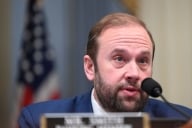You have /5 articles left.
Sign up for a free account or log in.
Daniel Stofleth, a doctoral student in communication at the University of Washington, has observed firsthand the most striking difference between research universities and community colleges: diversity.
“I have attended or taught at three four-year institutions, which were all relatively homogenous,” he says. At Seattle Central College, under the mentorship of communication instructor Marian Lyles during the 2015-16 academic year, Stofleth was involved in classrooms in which “the variety of student backgrounds coalesced into some of the most thought-provoking, and often challenging, conversations I’ve been a part of in my experience as a student and instructor.” He views the diversity of the two-year college system as its core strength. “These sites of cultural exchange and exploration,” he believes, “are core to an education in the humanities.” And until recently, these sites have been overlooked as equally important to doctoral education in the humanities.
Stofleth was a member of the inaugural cohort of Mellon Fellows for Reaching New Publics, part of the Reimagining the Humanities Ph.D. and Reaching New Publics initiative at the Simpson Center for the Humanities at the University of Washington. The partnership connects doctoral students from the University of Washington with faculty members and senior administrators at three community college campuses in the Seattle district. Its larger purpose is to acquaint our doctoral students with the importance of the two-year college in the landscape of higher education today. At the University of Washington, department chairs have told me that some 50 percent of majors in the humanities are transfer students. That number reflects a larger one: nationally, nearly half of all undergraduate enrollments are in community colleges. And hiring committees in the two-year college system are seeing an increasing number of Ph.D.s among their academic job applicants.
Initiatives like the one at UW make these emerging connections concrete. Six doctoral students are selected and paired with two-year-college faculty mentors in their disciplines during each year of the program, which is supported by the Andrew W. Mellon Foundation and runs from 2015 to 2019. In the first year, fellows represented the departments of English, history, communications, philosophy, French and Italian, and Spanish and Portuguese. An incoming cohort in the second year adds to the list the departments of Asian languages and literature and comparative literature, cinema and media.
The mentoring relationships between doctoral students and two-year-college faculty members are designed to become independent collaborations, with fellows and mentors undertaking projects that are responsive to their content expertise, to student needs in the classroom, and to the lines of inquiry that doctoral students bring to the process. To cite just a few examples, while Stofleth and Lyles focused on race and diversity, among other topics, other mentor-mentee pairs considered the expansion of study-abroad opportunities for two-year college students. Others taught a new writing course, designed by the faculty mentor and supported by the fellow, focusing on statements of purpose for college applications.
Lily Schatz, a doctoral candidate in history, was quickly drawn to TRIO, a federal program that offers targeted support to low-income and first-generation students. Tutoring TRIO students at Seattle Central College led her to ask questions about how faculty members at four-year colleges and universities can better engage such students after they transfer. She plans to co-author a journal article on the substantive pedagogical questions around student precarity and transfer with her faculty mentor, Jaime Cárdenas Jr.
Shadowing Cárdenas in the classroom deeply informed her teaching practice, from tutoring at Seattle Central to serving as a teaching assistant at the University of Washington. “It was wonderful to see how my mentor used different strategies to make history come alive for students who, in many cases, had not been convinced of the subject’s relevance to their own lives,” Schatz says.
Cárdenas describes the mentoring relationship as reciprocal: “One important thing I gained was an opportunity to reflect on my teaching. Having a fresh perspective was good for me. I was able to talk with my mentee and exchange ideas about what she thought worked and what didn’t,” he says. “Another positive outcome was learning about her research and applying it to the learning environment in my classes. For instance, she gave lectures on how Chinese immigration to America in the mid-1800s was part of a larger, transnational development of capital. My students appreciated her expertise.”
Fellows also gain experience in the administrative and service commitments of two-year-college faculty. Angela Durán Real, a doctoral student in Spanish, was not only “welcomed to the classroom” but also to “faculty meetings and different offices on campus,” where she “learned about the hard work that goes into being true to a college’s mission statement.”
The experiences of the doctoral students support DeWitt Scott’s recent claim that when Ph.D.s overlook two-year colleges in their job searches, they “miss out on some of the most gratifying and rewarding work in higher education.” As Scott also notes, faculty advisers in doctoral programs can make the same oversight in the guidance they offer to their students. Our fellows can tell you that this would be a mistake. Their engagements with community college faculty and students have been, on all counts, deeply rewarding.
And when it comes to professional development, there is no substitute for direct experience. Matt Reed, vice president for learning at Brookdale Community College, has shared advice and resources for those seeking faculty jobs at community colleges on his Inside Higher Ed blog. He strongly recommends that graduate students seek “exposure” to the community college classroom to “get a firsthand sense of the reality of the place.” The new program offers a model.
Bradley Lane, vice president of instruction at Seattle Central College, explains: “As community colleges and baccalaureate institutions increasingly share similar populations of students -- especially first-generation students and nontraditional students, not to mention large numbers of students who already transfer from one kind of institution to the other, the Mellon Fellows are gaining invaluable professional development that will help them as future faculty members. Not only are they working to reimagine what public work means for humanities scholars and teachers; they are also gaining skills to better serve the students they are increasingly likely to teach -- regardless of the type of institution where they work.”
Community colleges, as Lane suggests, are vital sites of professional development for current Ph.D. students. But because formal partnerships between doctoral programs and two-year colleges are still so rare, most students who are interested in these institutions have to make their own connections. One way to pursue such informal mentoring arrangements is through informational interviews: reaching out to two-year-college faculty in your field, sitting down with them, and getting their best advice. They will likely emphasize what Stacey Lee Donohue calls the “process of acculturation” experienced by new two-year-college faculty who were “trained in research” and are now “charged with teaching.” What our doctoral students have learned is that it is possible, and advantageous, to start this process early.
Amy Reddinger earned her Ph.D. in English at the University of Washington in 2007, long before the formal partnership with the Seattle District Colleges was established. She found her own way to a position at a two-year college, University of Wisconsin, Marinette, where she is now associate professor of English and gender studies, as well as chair of the gender, sexuality and women’s studies program.
Reddinger recommends that doctoral students interested in pursuing faculty jobs in two-year colleges ask themselves the following questions and seek out corresponding professional development opportunities.
- How would I teach a class in which my students include a local high school valedictorian and a student who is returning to school after 10 years in the work force? How would I go about building confidence in both of those students?
- What capacities must I develop to work effectively with students in crisis? What are the professional experiences that would help me to develop those capacities, not in the abstract, but in the interpersonal and concrete?
- Which populations would I like to work with and for? And how can I gain direct exposure to and meaningful experiences with those populations?
- What extracurricular workshops and experiences can I take advantage of that might help me in a job that asks for generalists and faculty who have many and diverse skills?
- What strategies can I develop -- awareness of what kind of library system I will have access to, regional collaboration opportunities, professional development and sabbatical funding structures -- to continue my own research agenda in a teaching-intensive institution?
- How will I balance my work and life commitments in the context of an institution that is defined in part by scarcity and an “all-hands-on-deck” imperative?
- How will I contribute to a professional community that is not hypercompetitive, but rather deeply collaborative and student centered?
These questions can also serve as powerful starting points for discussions between Ph.D. students and their faculty advisers. It is imperative that these questions become central to, not overlooked by, doctoral education in the humanities.








